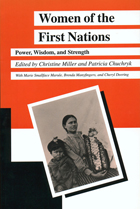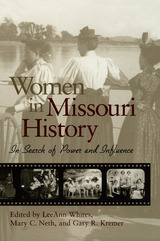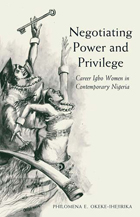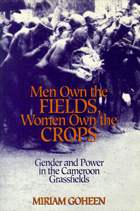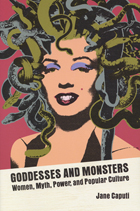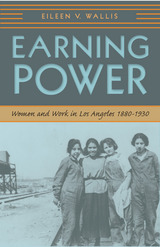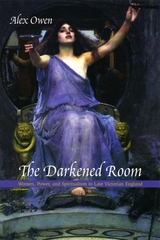Women & PowerCollection by Cassandra Verhaegen (7 items)They go hand in hand. Includes the following tags:
1960-, Body, Mind & Spirit, Canada, Feminist criticism, First Nations, Goddesses, Indian women, Los Angeles, Missouri, Monsters, Nigeria, Patriarchy, Strength, Wisdom, Women in popular culture
See More
|
Women in Missouri History
edited by LeeAnn Whites, Mary C. Neth and Gary R. Kremer
University of Missouri Press, 2004
Women in Missouri History is an exceptional collection of essays surveying the history of women in the state of Missouri from the period of colonial settlement through the mid-twentieth century. The women featured in these essays come from various ethnic, economic, and racial groups, from both urban and rural areas, and from all over the state. The authors effectively tell these women’s stories through biographies and through techniques of social history, allowing the reader to learn not only about the women’s lives individually, but also about how groups of “ordinary” women shaped the history of the state. The essays in this collection address questions that are at the center of current developments in the field of women’s history but are written in a manner that makes them accessible to general readers. Providing an excellent general overview of the history of women in Missouri, this collection makes a valuable contribution to a better understanding of the state’s past.
2
|
Negotiating Power and Privilege
by Philomina E. Okeke-Ihejirika
Ohio University Press, 2004
Even with a university education, the Igbo women of southeastern Nigeria face obstacles that prevent them from reaching their professional and personal potentials. Negotiating Power and Privilege is a study of their life choices and the embedded patriarchy and other obstacles in postcolonial Africa barring them from fulfillment. Philomina E. Okeke recorded life-history interviews and discussions during the 1990s with educated women of differing ages and professions. Her interviews expose both familiar and surprising aspects of the women’s experience—their victories and compromise—within their families, marriages, and workplaces. Okeke explores the many factors that have shaped women’s access to sponsorship and promotion in their quest to join men as partners in nation building. Negotiating Power and Privilege captures the voices of African female professionals and vividly portrays the women’s continuous negotiation as wives, mothers, single women, and workers. It shows the inherent limitations of contemporary policies in developing nations that often prescribe secondary and advanced education for women as a panacea for every social ill. It is also an original and important contribution to African studies, gender studies, development studies, education policy, and sociology. This engagingly written book will appeal to a wide audience, ranging from undergraduate students to scholars and professionals.
3
|
Men Own The Fields, Women Own The Crops
by Miriam Goheen
University of Wisconsin Press, 1996
Women’s labor—producing both crops and children—has long been the linchpin of male status and power throughout Africa. This book lucidly interprets the intricate relations of gender to state-building in Africa by looking historically at control over production and reproduction, from the nineteenth century to the present. Miriam Goheen examines struggles over power within the Nso chiefdom in the highlands of Western Cameroon, between the chiefdom and the state, and between men and women, as the women increasingly reject traditional marriages. Based on a decade of fieldwork, this work tracks the negotiations between chiefs and subchiefs and women and men over ritual power, economic power, and administrative power. Though Nso men obviously dominate their society at both the local level and nationally, women have had power of their own by virtue of their status as women. Men may own the land, for example, but women control the crops through their labor . Goheen explains clearly the place of gender in very complex historical processes, such as land tenure systems, title societies, chieftancy, marriage systems, changing ideas of symbolic capital, and internal and external politics. In examining women’s resistance to traditional patterns of marriage, Goheen raises the question of whether such actions truly change the balance of power between the sexes, or whether resistance to marriage is instead fostering the formation of a new elite class, since it is only the better-educated women of wealthier families who can change the dynamic of power and labor within the household. The issues raised in this book are not unique to Nso but apply throughout the African subcontinent. Written in a straightforward way with much of the theoretical argument in footnotes, Men Own the Fields, Women Own the Crops marshals important arguments of wide relevance in present-day Africa.
4
|
Goddesses and Monsters
by Jane Caputi
University of Wisconsin Press, 2004
The essays in Goddesses and Monsters recognize popular culture as a primary repository of ancient mythic energies, images, narratives, personalities, icons, and archetypes. Together, they take on the patriarchal myth, where serial killers are heroes, where goddesses—in the form of great white sharks, femmes fatales, and aliens—are ritually slaughtered, and where pornography is the core story underlying militarism, environmental devastation, and racism. They also point to an alternative imagination of female power that still can be found behind the cult devotion given to Princess Diana and animating all the goddesses disguised as popular monsters, queen bitches, mammies, vamps, cyborgs, and sex bombs.
5
|
Earning Power
by Eileen Wallis
University of Nevada Press, 2010
The half-century between 1880 and 1930 saw rampant growth in many American cities and an equally rapid movement of women into the work force. In Los Angeles, the city not only grew from a dusty cow town to a major American metropolis but also offered its residents myriad new opportunities and challenges.Earning Power examines the role that women played in this growth as they attempted to make their financial way in a rapidly changing world. Los Angeles during these years was one of the most ethnically diverse and gender-balanced American cities. Moreover, its accelerated urban growth generated a great deal of economic, social, and political instability. In Earning Power, author Eileen V. Wallis examines how women negotiated issues of gender, race, ethnicity, and class to gain access to professions and skilled work in Los Angeles. She also discusses the contributions they made to the region’s history as political and social players, employers and employees, and as members of families. Wallis reveals how the lives of women in the urban West differed in many ways from those of their sisters in more established eastern cities. She finds that the experiences of women workers force us to reconsider many assumptions about the nature of Los Angeles’s economy, as well as about the ways women participated in it. The book also considers how Angelenos responded to the larger national social debate about women’s work and the ways that American society would have to change in order to accommodate working women. Earning Power is a major contribution to our understanding of labor in the urban West during this transformative period and of the crucial role that women played in shaping western cities, economies, society, and politics.
6
|
The Darkened Room
by Alex Owen
University of Chicago Press, 2004
A highly original study that examines the central role played by women as mediums, healers, and believers during the golden age of spiritualism in the late Victorian era, The Darkened Room is more than a meditation on women mediums—it's an exploration of the era's gender relations. The hugely popular spiritualist movement, which maintained that women were uniquely qualified to commune with spirits of the dead, offered female mediums a new independence, authority, and potential to undermine conventional class and gender relations in the home and in society. Using previously unexamined sources and an innovative approach, Alex Owen invokes the Victorian world of darkened séance rooms, theatrical apparitions, and moving episodes of happiness lost and regained. She charts the struggles between spiritualists and the medical and legal establishments over the issue of female mediumship, and provides new insights into the gendered dynamics of Victorian society.
7
|
|
| Click here to go to the beginning. | |||||||
